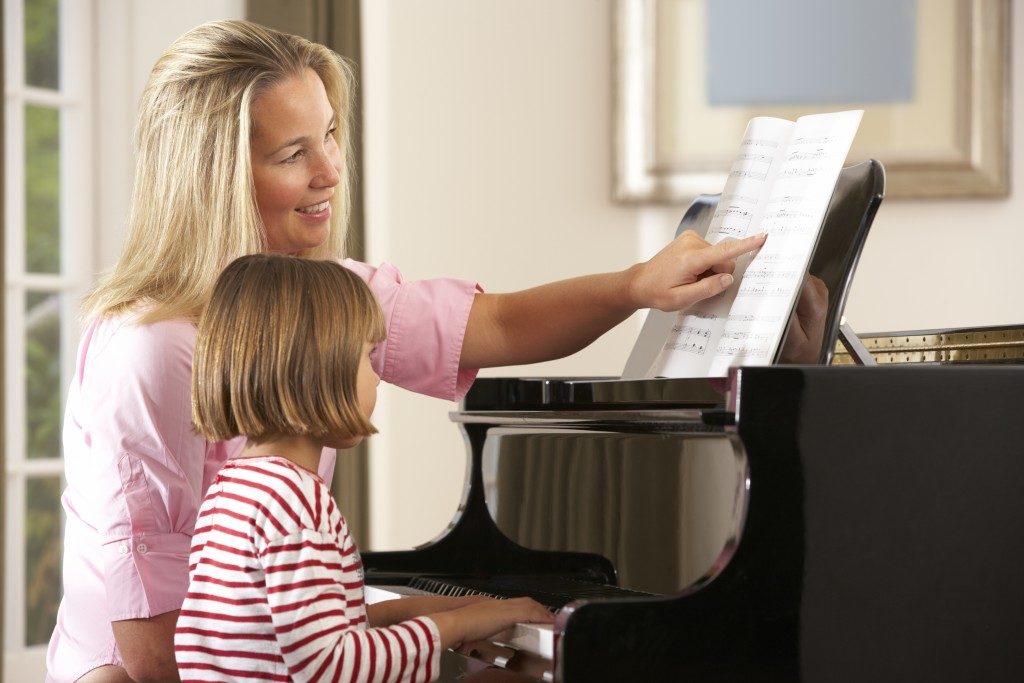Many kids are pushed by their parents to learn a musical instrument or two at a young age, citing various reasons such as to make them appreciate music more or for them to have an additional lifelong skill. But how effective is learning a musical instrument?
According to research, playing a musical instrument also affects the IQs of both children and adults. A piano lesson, in particular, teaches children to be more self-disciplined, more attentive, and better at planning, all of which contribute to better academic performance. Furthermore, it was also found that people who are over the age of 65 and play a musical instrument regularly have expressed positive changes in their brains.
Thus, consider this a reason to make your child learn a musical instrument. Piano lessons in Tampa, for example, teach both classical and popular music, so your kids will surely never get bored with them!
How Playing a Musical Instrument Affects Intelligence
To be specific, the research has found that the IQs of children and adults who play a musical instrument can increase by up to 7 points. The parts of their brain in charge of their motor skills, memory, hearing, and audio information storage are also revealed to become larger and more active compared to people who don’t play musical instruments. Their alertness, emotional perception, and planning skills are suggested to have improved as well.
Psychologist Lutz Jäncke from the University of Zurich shares that foreign languages can be learned more quickly if you play a musical instrument. It stems from the benefit of catching up on different tones and scores better, as well as the improved ability to store audio details.
Other Benefits of Learning a Musical Instrument
 Interestingly, math skills can also improve after learning a musical instrument. From understanding beats and rhythm, children pick up on mathematical patterns faster. Reading comprehension improves from their abilities to identify different notes on a page, hold a particular pitch, and connect it to the next one. In turn, they’d be able to understand literature better.
Interestingly, math skills can also improve after learning a musical instrument. From understanding beats and rhythm, children pick up on mathematical patterns faster. Reading comprehension improves from their abilities to identify different notes on a page, hold a particular pitch, and connect it to the next one. In turn, they’d be able to understand literature better.
Children get the chance to explore music’s rich and deep history. From learning more musical genres, the awareness of other cultures will grow, making them appreciate the roots of music more.
Music can be used as a form of self-expression as well. Children with illnesses confined in hospitals can pour out their emotions by playing a tune. Music therapy helps in reducing anxiety and stress in patients.
Learning a musical instrument in a group setting can improve your kid’s social skills. Especially for ill children, interacting with other patients can help them have a better time in the hospital. And in school, children can relate to their classmates better as they play the same instrument.
What if My Kid Refuses to Learn a Musical Instrument?
Forcing your kids to learn a musical instrument is not a good idea. Even with all these benefits, some children enjoy other types of activities more. Also, if your reason for enrolling your kid in a piano lesson, for example, is to express your status symbol, that’s not very practical reason. There is also no guarantee that your kid will keep playing the instrument until adulthood unless they’re eager and genuinely gifted.
Consider your child’s wishes when you talk about learning a musical instrument. If they show interest, sign them up for lessons and check on them from time to time to find out if they’re enjoying it. If they exhibit a fondness for the activity, encourage them to keep on learning.




